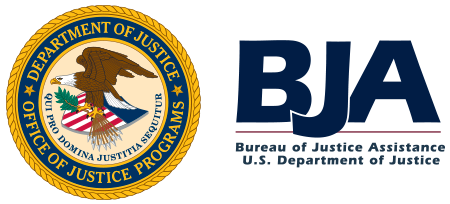Alaska Justice Reinvestment Initiative

In the decade prior to 2014, Alaska’s prison population increased by 27 percent, requiring the state to open the Goose Creek Correctional Center in 2012 to accommodate the growth.1,2 In 2015, policymakers estimated that Alaska would need an additional 1,416 prison beds by 2024, costing an estimated $169 million in new corrections spending during that time.3 Faced with an expanding prison population and with nearly two-thirds of released individuals returning to state facilities within three years, Alaska’s officials decided it was time to act.4
In 2014, the Alaska State Legislature formed the Alaska Criminal Justice Commission (ACJC) to study the state’s adult justice system and develop policy recommendations that would allow the state to “avert future prison growth…[and] reduce the prison population between 15 to 25 percent below current levels.”5,6
In May 2015, the ACJC partnered with the Crime and Justice Institute (CJI) and The Pew Charitable Trusts to provide technical assistance as part of the Justice Reinvestment Initiative (JRI).7,8 This work was funded by Pew and the Bureau of Justice Assistance, a component of the Department of Justice’s Office of Justice Programs. Over the next seven months, the ACJC analyzed Alaska’s adult justice system and issued a report in December 2015 with 21 recommendations to reduce recidivism and corrections costs.9
The Legislature translated the ACJC’s recommendations into Senate Bill (SB) 91, which passed with bipartisan support and was signed into law by Governor Bill Walker on June 11, 2016.10,11
Alaska’s JRI goals included:
- Implement evidence-based pretrial practices.
- Focus prison beds on people convicted of serious and violent offenses.
- Strengthen supervision and interventions to reduce recidivism.
- Reinvest in practices proven to reduce recidivism and protect public safety.12
In the years after SB 91 went into effect, the Alaska Legislature made several changes:

1. Implement evidence-based pretrial practices.
The ACJC found the number of people detained pretrial increased 81 percent from 2005 to 2014 due to increasingly long court wait times.21

2. Focus prison beds on people convicted of serious and violent offenses.
In 2014, 62 percent of those admitted to Alaska’s prisons were admitted for nonviolent misdemeanor offenses.28


3. Strengthen supervision and interventions to reduce recidivism.
From 2005 to 2014, Alaska saw a 32 percent rise in the number of individuals sent back to prison due to violations of their probation or parole conditions.34 Around three-quarters of these returns to prison were for technical violations such as alcohol consumption, missing a drug test or a positive test result, or failing to report to a supervision officer.35


4. Reinvest in practices proven to reduce recidivism and protect public safety.
In its 2015 report, the ACJC recommended reinvesting a portion of any savings resulting from implementing the recommendations into services intended to enhance public safety, reduce victimization, and maintain reductions in the prison population.44

Additional Accomplishments and Information Related to Reforms
- The ACJC met 71 times between 2014 and 2022 to evaluate Alaska’s criminal justice practices and monitor data.49,50
- The ACJC published seven annual reports and six reports on special topics in the criminal justice system. These special topical reports covered domestic violence, crime in Alaska, impaired driving and related offenses, restitution, sex offenses, and social impact bonds.51
Endnotes
1. Alaska Criminal Justice Commission, Justice Reinvestment Report (2015): 1, https://ajc.alaska.gov/acjc/docs/resources/reinvestment/ak_jri_report_final12-15.pdf.
2. Ibid.
3. Ibid.
4. The Crime and Justice Institute, Justice Reinvestment: Alaska Strengthening Public Safety While Curbing Correction Growth (Boston, MA: n.d.): 1, http://www.crj.org/assets/2018/06/Justice-Reinvestment-Alaska_Strengthening-Public-Safety-While-Curbing-Corrections-Growth.pdf.
5. Ibid.
6. Alaska Criminal Justice Commission, Justice Reinvestment Report (2015):14.
7. Ibid.
8. Alaska Criminal Justice Commission, Annual Report (2016): 3, https://ajc.alaska.gov/publications/docs/ACJC%20Reports/2016.pdf.
9. The Crime and Justice Institute, Justice Reinvestment: Alaska Strengthening Public Safety While Curbing Correction Growth, 2.
10. Alaska Criminal Justice Commission, Annual Report (2017): iv, https://ajc.alaska.gov/publications/docs/ACJC%20Reports/2017.pdf.
11. The Crime and Justice Institute, Justice Reinvestment: Alaska Strengthening Public Safety While Curbing Correction Growth, 2.
12. Ibid.
13. Alaska Criminal Justice Commission, Annual Report (2017): iv.
14. Ibid. at 52.
15. Alaska S.B. 55 (2017). https://legiscan.com/AK/text/SB55/id/1627269.
16. Alaska S.B. 54 (2017). https://legiscan.com/AK/text/SB54/2017.
17. Alaska Criminal Justice Commission, Annual Report (2018): 20-21, https://www.ajc.state.ak.us/acjc/docs/ar/2018.pdf.
18. Alaska H.B. 49 (2019). https://www.akleg.gov/basis/Bill/Text/31?Hsid=HB0049Z.
19. Alaska H.B. 14 (2019). https://legiscan.com/AK/bill/HB14/2019.
20. The Vera Institute, People in Jail and Prison in 2022 (Brooklyn, NY: 2023), 13,
https://www.vera.org/downloads/publications/People-in-Jail-and-Prison-in-2022.pdf.
21. Alaska Criminal Justice Commission, Justice Reinvestment Report (2015): 1, https://ajc.alaska.gov/acjc/docs/resources/reinvestment/ak_jri_report_final12-15.pdf.
22. Alaska Criminal Justice Commission, A Practitioner’s Guide to Criminal Justice Reform, 4-9, https://www.ajc.state.ak.us/acjc/docs/resources/new/ak_practitionerguide_2018-10-29.pdf.
23. The Crime and Justice Institute, Alaska’s Pretrial Transformation, 3, https://www.cjinstitute.org/publication/alaskas-pretrial-transformation/.
24. Ibid.
25. Leah Sakala and Samantha Harvell, Justice Reinvestment Initiative (JRI): Alaska (Washington, D.C.: 2019): 1, https://www.urban.org/sites/default/files/2020/03/06/justice_reinvestment_initiative_jri_alaska.pdf.
26. Ibid.
27. Alaska Criminal Justice Commission, Annual Report (2018): 28.
28. The Pew Charitable Trusts, Alaska’s Criminal Justice Reforms: Comprehensive Law Improves Pretrial, Sentencing, and Correction Policies (Washington, D.C.: 2016): 5, https://www.pewtrusts.org/-/media/assets/2016/12/alaskas_criminal_justice_reforms.pdf.
29. Alaska Criminal Justice Commission, Annual Report (2017): vi.
30. Alaska Criminal Justice Commission, A Practitioner’s Guide to Criminal Justice Reform, 10 – 11, https://www.ajc.state.ak.us/acjc/docs/resources/new/ak_practitionerguide_2018-10-29.pdf.
31. Alaska Criminal Justice Commission, Annual Report (2017): vi, https://ajc.alaska.gov/publications/docs/ACJC%20Reports/2017.pdf.
32. Alaska Criminal Justice Commission, Annual Report (2018): 20-21.
33. Alaska Department of Corrections, 2022 Offender Profile (2022): 17.
34. Alaska Criminal Justice Commission, Annual Report (2017): vi.
35. Ibid.
36. Alaska Criminal Justice Commission, A Practitioner’s Guide to Criminal Justice Reform, 18.
37. Ibid. at 19.
38. Leah Sakala and Samantha Harvell, Justice Reinvestment Initiative (JRI): Alaska, 1.
39. Alaska Criminal Justice Commission, Annual Report (2019): 34, https://ajc.alaska.gov/publications/docs/ACJC%20Reports/2019.pdf.
40. Alaska Criminal Justice Commission, A Practitioner’s Guide to Criminal Justice Reform, 18.
41. Alaska Criminal Justice Commission, Annual Report (2019): 32, https://ajc.alaska.gov/publications/docs/ACJC%20Reports/2019.pdf.
42. Alaska Criminal Justice Data Analysis Commission, 2023 Annual Report, 14, https://www.ajc.state.ak.us/datacommission/docs/reports/DAC_2023_Annual_Report.pdf.
43. Alaska Criminal Justice Commission, Annual Report (2020): 33, https://www.ajc.state.ak.us/acjc/docs/ar/2020.pdf.
44. Alaska Criminal Justice Commission, Annual Report (2015): 29, https://www.ajc.state.ak.us/acjc/docs/rc/commission_recommendations.pdf.
45. The Pew Charitable Trusts, Alaska’s Criminal Justice Reforms: Comprehensive Law Improves Pretrial, Sentencing, and Correction Policies (Washington, D.C.: 2016), 2.
46. Alaska Criminal Justice Commission, A Practitioner’s Guide to Criminal Justice Reform, 22.
47. Alaska Criminal Justice Commission, Annual Report (2017): 38.
48. Alaska Criminal Justice Commission, Annual Report (2021): 47, https://www.ajc.state.ak.us/acjc/docs/ar/2021.pdf.
49. “Alaska Criminal Justice Commission (2014-2022),” Alaska Criminal Justice Commission, accessed December 22, 2023, https://www.ajc.state.ak.us/acjc/docs/mt/commission_meeting_summaries.pdf.
50. “Commission Meeting Summaries,” Alaska Criminal Justice Commission, accessed December 22, 2023,
https://www.ajc.state.ak.us/acjc/.
51. “Alaska Criminal Justice Commission (2014-2022),” State of Alaska, accessed December 11, 2023,
https://www.ajc.state.ak.us/acjc/.

The Justice Reinvestment Initiative (JRI) is a data-driven process funded through a public-private partnership between the Bureau of Justice Assistance (BJA), a component of the Department of Justice’s Office of Justice Programs, and The Pew Charitable Trusts. JRI aims to improve public safety by helping states make their justice systems more fair, effective, and efficient as they direct resources to address the complex factors that drive crime and recidivism.

The Crime and Justice Institute (CJI) has more than a decade of experience as a JRI technical assistance provider, supporting states through assessing strengths and needs, conducting data analysis, facilitating policy development, and assisting with implementation.
Acknowledgments
This brief was prepared by Barbara Pierce, Len Engel, Dr. Katie Zafft, Abigail Strait, Andy Tisdel, Bryson Bellow, Josh Vezza, Amanda Coscia, and Ashley Neufeld.
This project was supported by Grant No. 15PBJA-21- GK-04350-JRIX awarded by the Bureau of Justice Assistance. The Bureau of Justice Assistance is a component of the Department of Justice’s Office of Justice Programs, which also includes the Bureau of Justice Statistics, the National Institute of Justice, the Office of Juvenile Justice and Delinquency Prevention, the Office for Victims of Crime, and the SMART Office. Points of view or opinions in this document are those of the author and do not necessarily represent the official position or policies of the U.S. Department of Justice.
Project Contact:
Barbara Pierce, Director of Justice Initiatives | CJI, comms@cjinstitute.org
